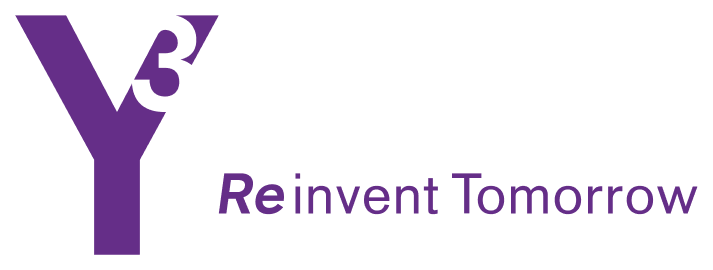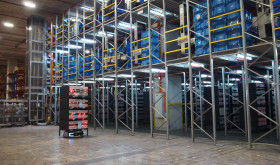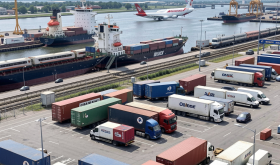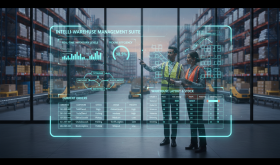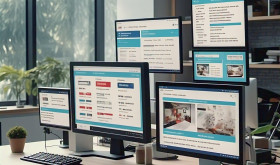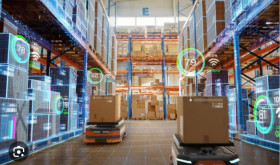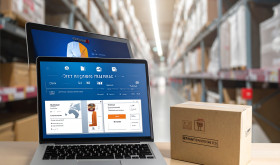
In the constantly complex, volatile world of supply chains today, businesses deal with everything from geopolitical tensions and natural catastrophes to unforeseen changes in demand and problems in logistics. As businesses navigate through these turbulent times, operational resilience could be sustained with the help of advanced technologies such as Transport Management Systems.
The Power of Real-Time Visibility
Some of the most critical features of a modern Transport Management System are real-time visibility. Real- time tracking of shipments allows an organization to update information at the granular level regarding the exact position of its goods, thus letting it:
Proactively Address Disruptions: By monitoring shipments in real-time, businesses can identify potential issues early on, such as traffic congestion, port delays, or adverse weather conditions. This proactive approach allows them to take swift action, reroute shipments, or implement contingency plans to minimize disruptions and avoid costly delays.
Smarter Decision-Making: Real-time data helps in empowering businesses toward informed decision-making. In case a shipment is running late, it can be rerouted quickly or its delivery schedule adjusted to avoid disappointing customers. Real-time data on the analysis of traffic patterns, weather forecasts, and carrier performance can enable the business to optimize its transportation methods and save costs.
Improve Customer Experience: Accurate and timely shipment knowledge will go a long way in increasing customer satisfaction and loyalty. The customer appreciates transparency and timely information, especially when at some crossroads. Real-time visibility lets businesses have proactive communication with customers and inform them of potential delays or other changes in the delivery schedule, which reduces frustration among customers and leads to increased trust.
The Role of AI and Machine Learning
Moreover, AI and ML technologies are being incorporated into many Transport Management System solutions for further optimization of transport operations. Such advanced tools are able to analyse vast amounts of data for patterns, predict trends, and perform routine tasks on their own, which brings significant benefits.
Predictive Analytics: Through the analysis of historical data and real-time information, AI-driven Transport Management System is able to predict potential disruptions in traffic congestion or port closure, thus helping businesses take remedial measures.
Automating decisions:AI-driven systems can automate tasks, such as load planning, carrier selection, and route optimisation, without much human interference. AI optimizes transportation routes and delivers at lower costs by considering several factors that include real-time traffic flow, carrier performance, and delivery deadlines.
Continuous Improvement:ML algorithms can continuously learn and adapt to changing conditions, ensuring that Transport Management System solutions remain effective and efficient. By analysing historical data and real-time feedback, ML can identify opportunities for improvement and optimise transportation strategies.
Building a Resilient Supply Chain
By leveraging real-time visibility and AI-powered capabilities, businesses can build more resilient and agile supply chains. This increased resilience enables them to:
- Weather Storms: Companies can have a head start on upcoming disruptions, which might be due to weather changes, natural calamities, or even geopolitical conditions.
- Seize Opportunities: Companies that are enabled with real-time visibility and predictive analytics may avail an opening to new markets, efficient transportation routes, or the next great business venture.
- Deliver Exceptional Customer Experiences: Companies bring more satisfaction and loyalty to their customers by enabling them to provide accurate and timely delivery information. In other words, real-time transport visibility and AI-powered Transport Management System solutions form the backbone of supply chain resilience. By embracing these technologies, businesses will have a better ability to manage the complexity arising from today’s supply chain landscape, reduce potential risks, and provide truly superior customer experiences.
Additional Considerations for Enhanced Supply Chain Resilience:
- Diversification of Suppliers and Carriers: Decreasing dependence on one supplier or carrier reduces associated risk in case of disruption.
- Strong Inventory Management: This would help in managing inventory levels optimally by reducing the carrying cost of inventory and improving product availability.
- Strong Supplier Relationships: Building a strong relationship with the suppliers will enhance collaboration, communication, and responsiveness for changes.
- Risk Management Strategies: Comprehensive risk management strategies provide the ability to identify and mitigate potential risk factors, including natural calamities, geopolitical unrest, and supply chain disruption.
- Data-Driven Decision-Making: Data analytics also provide valuable insights into supply chain operations for making informed decisions through data analysis.
With an integrated approach toward supply chain management, supported by advanced technologies, businesses will be able to create agile supply chains capable of meeting challenges and competing in the global marketplace.
